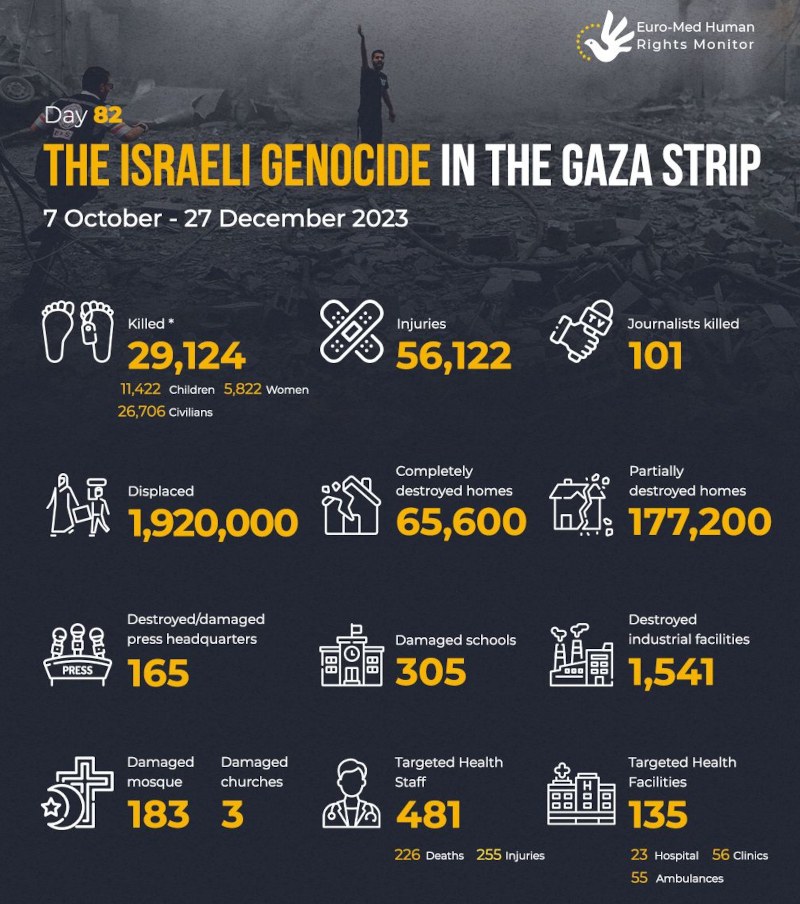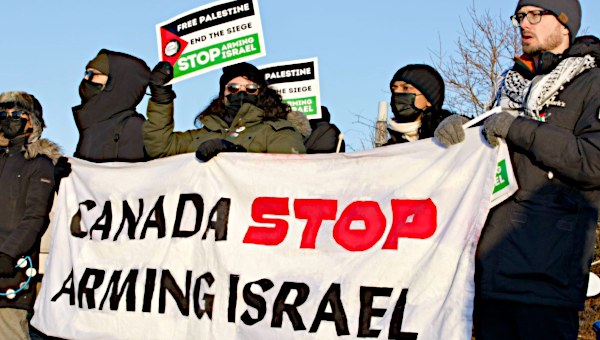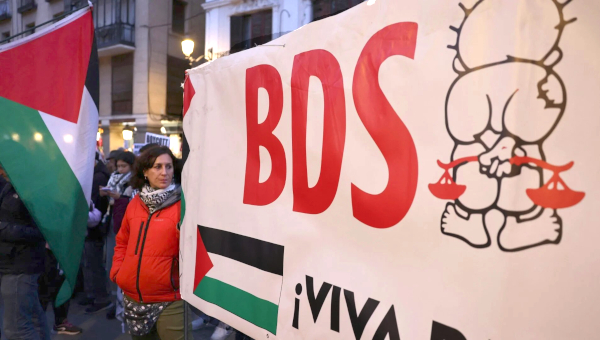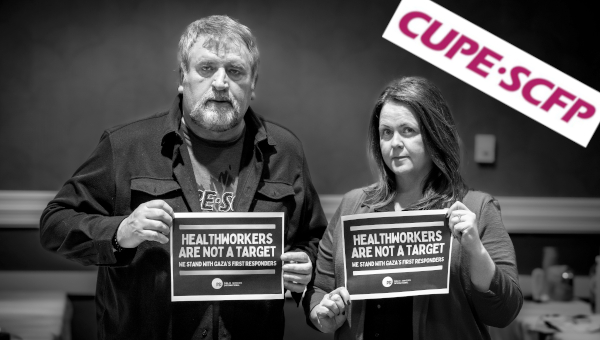The Gaza Crisis: A Modest Proposal for Immediate Relief
This modest proposal is not a satire after Jonathan Swift’s 18th century satirical essay “A Modest Proposal” in which he suggested that the British solve the Irish overpopulation problem by eating Irish children. My proposal is about feasible and immediate ways to stop Israel from massacring its colonized people, killing on average a Palestinian child every fifteen minutes and an adult every ten minutes. The most recent estimate by the Euro-Med Monitor is that Israel has killed 29,000 Palestinians in two months (plus unknown numbers buried under rubble, plus uncounted numbers who die due to horrendous health conditions). Many will ridicule my proposals as utterly politically naïve. My background is not in political science but as a mother and grandmother, a social worker during the brief war-on-poverty era, a psychoanalyst, and a student of social and intellectual history.
Here’s my impression of current politics: while recent history shows that innumerable perpetrators characteristically get away with appalling crimes, it’s possible that intransigent decision-makers will be persuaded by threats of being charged by the International Criminal Court (ICC) or International Court of Justice (ICJ) with genocide, being arrested under the principle of universal jurisdiction, or being charged with violations of the UN Charter and international humanitarian law, or that the threat of lawsuits against the profiteers of this genocide, which could persuade some to recommend at least the most meagre measures be taken such as a humanitarian pause or a temporary ceasefire.

Humanitarian Pause?
Cutting to the chase, here are steps that can be taken immediately. Certainly these ways of providing essential supplies to the besieged Strip can be elaborated, supplemented, corrected by experts in public health, funding, in the use of various technologies that can breach borders and checkpoints (e.g. swarms of drones,1 air balloons, kites, small boats), or by legal experts for bypassing the morass of Jesuitical, talmudic, and originary (used by reactionary US Supreme Court judges) interpretations of law/lawfare and sovereignty.2 For providing water, some water purification methods that could be dropped from drones are 21-day filters, life straws with gravity bag (up to 1000 litres can serve 500 people/day and includes a 10-liter sack with a prefilter for sediment ($174). Emergency medical supplies would include soap; wipes, preferably alcohol; painkillers and anesthesia; basic antibiotics; bandages and tourniquets; surgical scalpels; debridement to cut away tissue from wounds; bone saws for amputations; food such as high protein seeds, nuts, soy/sunflower/peanut butter; lightweight space blankets to stave off hypothermia; plastic bags for collecting feces.3
Although on December 13, 153 countries approved an “immediate humanitarian ceasefire” (with 23 abstentions and 10 against), how is it then that those 153 countries can’t get food, water, and medical supplies into Gaza? Meanwhile, at the same time, supposedly sane people allow, promote, and facilitate sadistic desecrations of real people? Guterres cries and bemoans but doesn’t call for practical, realizable steps or demand immediate action or proposals? Stories about starving Gazans entering UNRWA building for their own food use these words: “plunder,” “break into,” “loot” the UNRWA agency for food. In the past, Hans von Sponeck and Denis Halliday, directors of the UN Oil for Food Program responsible for ½ million Iraqi child deaths, resigned in disgust with the UN.
All UN members must sign on to the principles of the 1948 UN Charter to end the “scourge of war.” International law expert, the late Michael Mandel, summarizes these principles4:
Ending the Scourge of War
Self-defense justifies the taking of life only where demonstrably necessary to save life, so if there is a non-violent alternative, it must be taken unless there is not time to seek a collective peaceful solution. Otherwise, authorization by the UNSC is required.
Wars of aggression are prohibited, including invasion by another state. No political, economic, or military consideration is an excuse. Only self-defense is legitimate and is not considered a war of aggression. Only the security Council can provide legitimacy, but even the UNSC has limits on its power. Chapter VI provides for the ‘pacific settlement of disputes’: the parties to any dispute ‘shall, first of all, seek a solution by negotiations, enquiry, mediation, conciliation, arbitration, judicial settlement, resort to regional agencies or arrangements, or other peaceful means of their own choice (article 33).
If they fail to settle the dispute on their own, Article 37 lays down the absolute requirement that ‘they shall refer it to the Security Council’ Chapter VII – ‘Action with respect to threats to the peace, breaches of the peace and acts of aggression’ is the part that provides the Security Council with authority to use coercive measures, including armed force, but only as ‘may be necessary to maintain or restore international peace and security.’
It also has the power to ‘make recommendations’ (Article 39), or to employ ‘measures not involving the use of armed force,’ which ‘may include complete or partial interruption of economic relations and of rail, sea, air, postal, telegraphic, radio, and other means of communication and the severance of diplomatic relations.’
Article 42 allows, finally, the use of armed force. Should the Security Council consider that measures provided for in Article 41 would be inadequate or have proved to be inadequate, it may take such action by air, sea, or land forces as may be necessary to maintain or restore international peace and security. Such action may include demonstrations, blockade, and other operations by air, sea, or land forces. The Security Council of the United Nations has been made the supreme international authority over war and peace by a solemn treaty, drafted, signed, and still voluntarily adhered to by the United States and all the member states… It is binding on all members as a condition of their membership.

Breaking International Treaties
However, the treaty has been violated from the very beginning, starting with the 1948 Israeli aggression against Palestinians (the Nakba), followed by the partition and recognition of the Jewish state, and by 1952, the perpetration by the UN of the genocidal war on Korea. Peacekeeping forces require unanimous approval by the five permanent nuclear powers of the Security Council.
Add these actions to petitions, protests, appeals to the ICC and ICJ. Add blockades to BDS tactics: there is precedent in Block the Boat by dockworkers’ and labour’s refusal to unload weapons destined for Israel. Add other civil disobedience possibilities like didactic sabotage: having the oppressors experience the siege by cutting off water, food, sanitation, electricity, and blocking exits in key North American and EU offices.
Do you ask how a president who lost two of his own children brings misery to immigrant children locked in ICE and separated from their parents, how this president provides arms to kill Palestinian children? Or how a democratic socialist leader can’t bring himself to say “ceasefire” or how the UK Labour Party has it in for a compassionate, thoroughly unprejudiced former leader in the name of antisemitism? Or how people in positions of decision-making know nothing about Israeli or Arab history?5 Or how 153 nations are blocked by one tiny country from even providing water as it collectively kills thousands?
Can you imagine what it’s like to exist in the Gaza holocaust, every moment? Here’s a poem about being a mother every moment, the state of “primary maternal preoccupation” (so eloquently evoked decades ago by pediatrician/psychoanalyst D.W. Winnicott):
The baby has a fever
And you need to leave to get
Tylenol.He wants to be held
Tight
With both arms but
You
need to put on your jacket.Do you:
Juggle baby
One arm at a time
Balanced in the crook
As you unsuccessfully snag your arms in
(might take a while)Or put baby down
And throw the jacket on in seconds
As he howls?Single Mama Moment #41, Christy NaMee Eriksen6
Hilary Clinton wrote a book as if she cares about children, It Takes A Village. Nomi Prins’ It Takes a Pillage, exposes neoliberal criminality.
J’Accuse by Zola is about the antisemitic Dreyfuss Affair in France. Haim Brehseeth-Zabner’s J’Accuse is about this Israeli genocide. J’Accuse by Aharon Shabtai is a poem about how Israel’s bloodbath involves a whole orchestra of perpetrating criminals. It is tells of a Palestinian father trying to shield his terrified son, captured in a heart-wrenching photograph (the Goldstone Report found that Israel used human shields, not Hamas). •
Endnotes
- On drones, see Ann Rogers and John Hill Unmanned: Drone Warfare and Global Security, Pluto Press and BTL, Toronto, 2014. See for example p. 51 use of “swarms” to “swamp enemy detection” or “force an enemy to expend large numbers of missiles.”
- For example, see Norman Finkelstein Beyond Chutzpah: on the misuse of anti-semitism and the abuse of history, University of California Press, Berkeley, 2005, and Eyal Weizman The Least of All Possible Evils: humanitarian violence from Arendt to Gaza, Verso, London, 2011.
- Exemplifying capability and affordability of drones is American company Zipline International Inc. As of November 2023, its drones have made more than 800,000 commercial deliveries and flown more than 40 million autonomous miles. The company’s drones deliver whole blood, platelets, frozen plasma, and cryoprecipitate along with medical products, including vaccines, infusions, and common medical commodities. It’s likely that this particular company would not be allowed by the US to provide services to Palestine. Also, see “Jordan drops 6th batch of medical aid to southern Gaza field hospital.”
- Michael Mandel, How America Gets Away with Murder: Illegal wars, collateral damage and crimes against humanity, Pluto Press, London, 2004. p. 12.
- On Hamas and recent history of the Middle East, also see Ilan Pappe, A History of Modern Palestine: one land, two peoples, Cambridge U Press, Cambridge UK, 2004. Sara Roy Hamas and Civil Society in Gaza: engaging the Islamist social sector, Princeton U, Princeton, 2011, Henry Siegman “Israel’s Lies.”
- Pauline Gumbs, China Martens, Mai’a Williams, Revolutionary Mothering: Love on the front lines PM and ETL, Toronto, 2016, p. 86.





